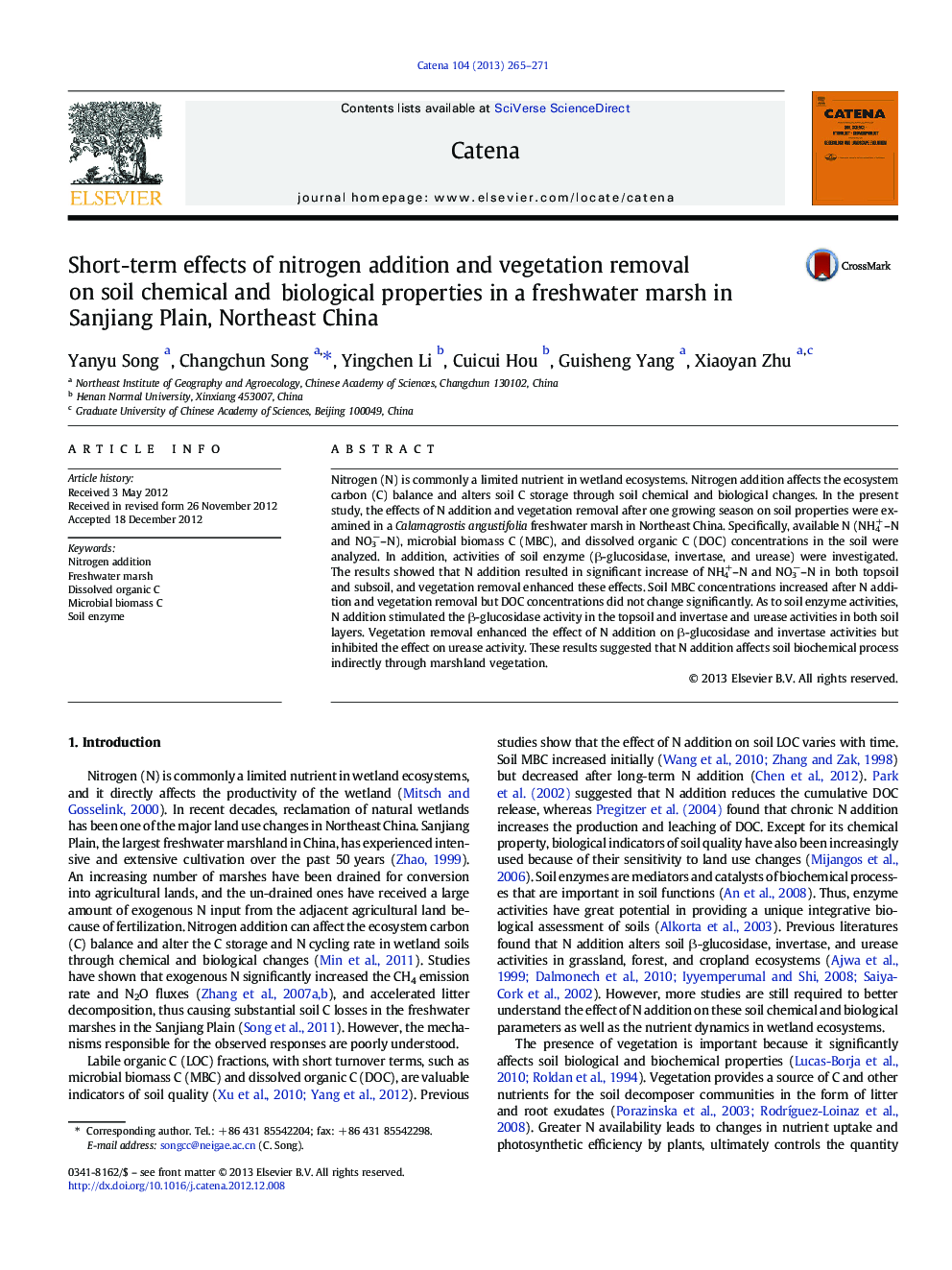| Article ID | Journal | Published Year | Pages | File Type |
|---|---|---|---|---|
| 4571694 | CATENA | 2013 | 7 Pages |
Nitrogen (N) is commonly a limited nutrient in wetland ecosystems. Nitrogen addition affects the ecosystem carbon (C) balance and alters soil C storage through soil chemical and biological changes. In the present study, the effects of N addition and vegetation removal after one growing season on soil properties were examined in a Calamagrostis angustifolia freshwater marsh in Northeast China. Specifically, available N (NH4+–N and NO3−–N), microbial biomass C (MBC), and dissolved organic C (DOC) concentrations in the soil were analyzed. In addition, activities of soil enzyme (β-glucosidase, invertase, and urease) were investigated. The results showed that N addition resulted in significant increase of NH4+–N and NO3−–N in both topsoil and subsoil, and vegetation removal enhanced these effects. Soil MBC concentrations increased after N addition and vegetation removal but DOC concentrations did not change significantly. As to soil enzyme activities, N addition stimulated the β-glucosidase activity in the topsoil and invertase and urease activities in both soil layers. Vegetation removal enhanced the effect of N addition on β-glucosidase and invertase activities but inhibited the effect on urease activity. These results suggested that N addition affects soil biochemical process indirectly through marshland vegetation.
► Nitrogen addition has significant effects on marshland soil biochemical properties. ► Short-term nitrogen addition does not significantly affect soil DOC pool in marshland. ► Nitrogen addition can affect the soil biochemical process indirectly through vegetation. ► Nitrogen addition and vegetation removal significantly increased soil MBC pool.
